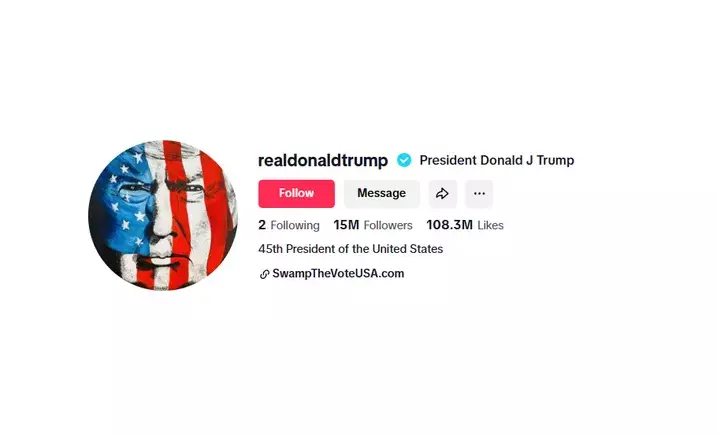As the saga of TikTok in the United States continues, the application finds itself tangled in a precarious legal limbo, raising questions about its legitimacy, future, and the broader implications of political decisions. While President Trump has effectively provided a temporary reprieve for TikTok in the U.S. market, ongoing legal challenges and concerns surrounding national security complicate the situation further.
Initially compelled to shut down operations in the U.S. under the “Protecting Americans from Foreign Adversary Controlled Applications Act,” TikTok’s ban was set to take place after the Supreme Court upheld legislation aimed at protecting American citizens from perceived threats posed by foreign applications. However, the legal situation shifted dramatically when President Trump, in a controversial move, granted TikTok a 75-day extension. Despite this reprieve, legal experts have quickly pointed out that the extension may not hold up in court. The law, as it stands, is active, and TikTok’s temporary operational status appears to violate the newly enacted legislation.
The heightened state of uncertainty culminated in chaos among app providers over a weekend—concerns over severe monetary penalties for non-compliance unleashed apprehension among stakeholders. While Trump offered assurances that tech giants like Apple and Google would not face fines for continuing to host TikTok, these firms remain skeptical. They have opted to shirk their risk, choosing safety over potential backlash from the new administration.
The current state of TikTok’s operations underlines an ongoing political battle between administration perspectives and tech giants’ operational decisions. President Trump’s rhetoric surrounding TikTok indicates a blend of political maneuvering with potential future profit—a strategy that financial analysts and tech policy experts are closely watching. Trump’s assertion of seeking a 50% ownership stake highlights a rare fusion of national interests and business opportunities.
This situation reveals the pivotal role political leaders play in technological governance and regulation. Moreover, it raises questions about the motivations behind policymaking. Is the administration motivated by genuine concerns for national security, or is it leveraging opportunities for financial gain? The disparity in approaches exhibited by different tech companies can partly be attributed to their unique risk profiles and business strategies, which vary dramatically based on potential reputational damage and financial implications.
The overwhelming vote across both chambers of Congress—431 to 83—signals a rare moment of unity on an issue so often divided along party lines. This bipartisan agreement stems from undisclosed security briefings that have raised alarm bells among lawmakers regarding TikTok’s data handling practices and affiliations. The contents of these briefings remain classified, but the sheer volume of support for imposing restrictions on TikTok indicates a substantial fear regarding the app’s potential misuse.
Trump’s anticipated receipt of these classified reports could pivot the electoral discourse significantly, either reinforcing his stance against TikTok or prompting a reevaluation of the app’s presence in the U.S. market. Given that these reports seem to contain critical intelligence underscoring potential risks, it is plausible that they could influence executive actions moving forward.
As of now, TikTok’s operations remain functional for U.S. users, but its future remains precarious. While Oracle’s compliance and Trump’s protective promises provide a buffer, the omnipresent legal cloud leaves unanswered questions regarding potential fines and administrative enforcement. Apple and Google’s hesitance to support the app exacerbates the concern for TikTok’s viability under U.S. law, and any abrupt shift in presidential policy could lead to a sudden operational shutdown.
Looking to the future, several scenarios could unfold. President Trump’s rhetoric about gaining a financial stake could lead to further negotiations, potentially paving a path to a long-term solution. Yet, without coordinated efforts to address security concerns and lift the legal ban definitively, TikTok’s operations in the U.S. will remain tenuous.
The situation surrounding TikTok serves as a microcosm of the greater intersection between technology and politics. As unfolding events suggest, the resolution of TikTok’s future will likely require careful navigation through legal, political, and security landscapes—an intricate dance that could result in far-reaching implications for technologies influenced by geopolitical considerations. While TikTok might enjoy its temporary respite, it stands on shaky ground, a fact that cannot be ignored by its users or stakeholders.


Leave a Reply